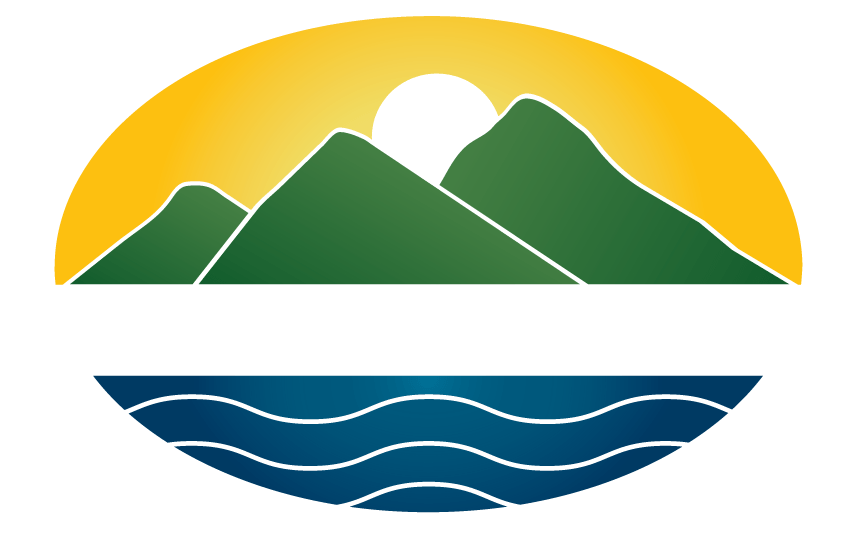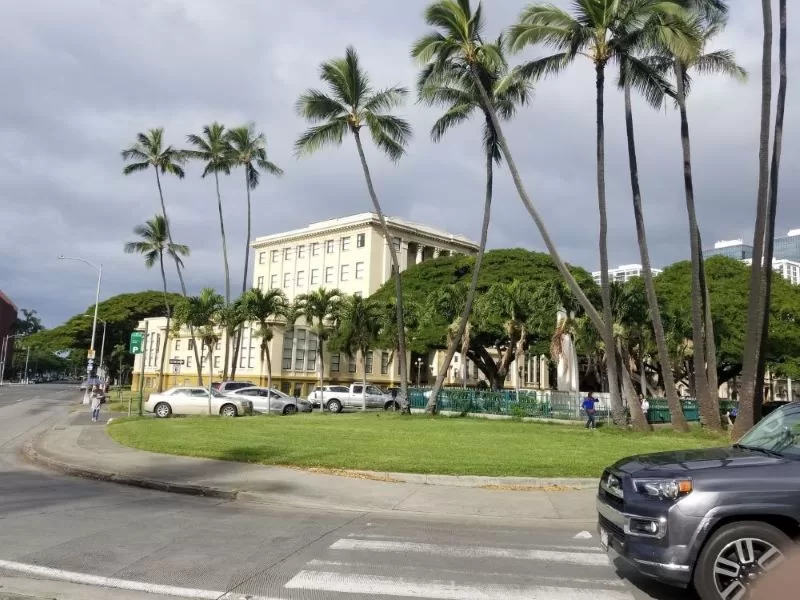Life of the Land received a phone call in March 1996. Would we join an effort to stop a transmission line from being built? Hawaiian Electric Company (HECO) had proposed the project in the 1970s and the community had stopped it. HECO was resurrecting the proposal. The Board of Land and Natural Resources was the decision maker as the proposed transmission line would go through conservation-zoned land.
We figured that a good place to start was the Public Utilities Commission (PUC). We went there and asked for the file. The staff asked, “What`s the docket number?” We wondered what a docket was. My partner at Life of the Land and in life stated that if I got into energy, it would become my lifetime mission. She was right.
I went to the PUC on numerous occasions, borrowing microfiche reels in exchange for depositing my driver`s license. I crossed the street to the main branch of the Hawai`i State Library where I perused the microfiche, seeking to understand what was going on.
Life of the Land urged the PUC to make accessing the documents easier. The PUC began placing binders of new dockets in their public outer office in April 2000.
We could only locate two places that had all PUC decisions be year: the libraries of the Hawaii Supreme Court and the University of Hawaii at Manoa William S. Richardson School of Law. We photocopied and scanned several major decisions and posted them on the Life of the Land website.
“Environmental group posts PUC documents online” was the headline of the Pacific Business News on July 9, 2001. “Decisions rendered by the state Public Utilities Commission are filed in numerical order, starting from the first decision of the first commission… The state is moving to put as much information as possible online, Gov. Ben Cayetano says, but the process is time-consuming and costs money. The governor says he hopes Life of the Land will make available all documents.”
The PUC created a Document Management System (DMS) in 2005. The site contains the vast virtually all files in all dockets opened since 1998. Some files were hundreds of megabytes in size. Each file had to be downloaded to be searched. The PUC overhauled the DMS in 2008-09 allowing advanced searches across dockets using Boolean query modifiers.
Life of the Land filed testimony of 12 witnesses in a PUC proceeding in August 2006. The PUC posted a 1-page document stating that the filing was available at the PUC. Life of the Land uploaded each testimony to the PUC web site in March 2020. The testimonies covered climate change, environmental justice, biofuel technology, cultural impacts associated with biofuels, and ocean energy — wave energy, sea water air conditioning, and ocean thermal energy conversion (OTEC).
Life of the Land asked the PUC as to why the book listing all decisions and orders omitted several decisions and orders. In response, the PUC issued Decision and Orders without numbers for a period lasting from about May 20, 2008, until December 5, 2011.
The Legislature passed Act 69 in 2011 that required the PUC to accept all required filings in either an original or electronic form no later than July 1, 2013.
NextEra Energy proposed acquiring the HECO Companies. NextEra responded to a Life of the Land Information Request on April 20, 2015, with copies of numerous emails. This kicked off the new era of electronic discovery — none too soon as over 90% of all documents in the current information age exist only in electronic form. Anything posted on social media is discoverable.
Life of the Land filed a motion with the PUC in August 2015 requesting that `Olelo Community Television film the HECO-NextEra Evidentiary Hearing.
“Motion for Media Access. There is precedent by the Commission for cameras to film the Evidentiary Hearing. Life of the Land asked ~ and the Commission agreed ~ to have two Evidentiary Hearings filmed. These hearings were held in the Commission Conference Room. ‘Olelo Community Television used three cameras for each proceeding. In the first proceeding the cameras were manned. With updated equipment the second filming involved robotic cameras. An ‘Olelo Executive Team oversaw the process. We sent an email to all parties. Some supported it while others did not respond. No party opposed it.”
The PUC approved the request on September 17, 2005.
Prior to the pandemic, over 95% of docketed filings were on paper. The PUC issued a temporary order on March 13, 2020, to allow for all electronic filings. The PUC is currently receiving 100% of its docketed filings through electronic means. In FY 2021, the PUC held 19 live streamed events and posted them to YouTube.
The PUC is converting its aging Document Management System (DMS) to a new Case and Document Management System (CDMS) effective in mid-June 2023. The new system will provide a community-friendly website for filing and reviewing all documents.

